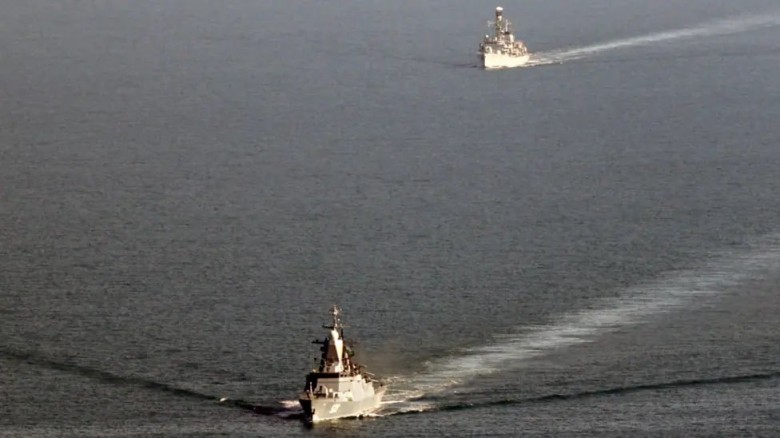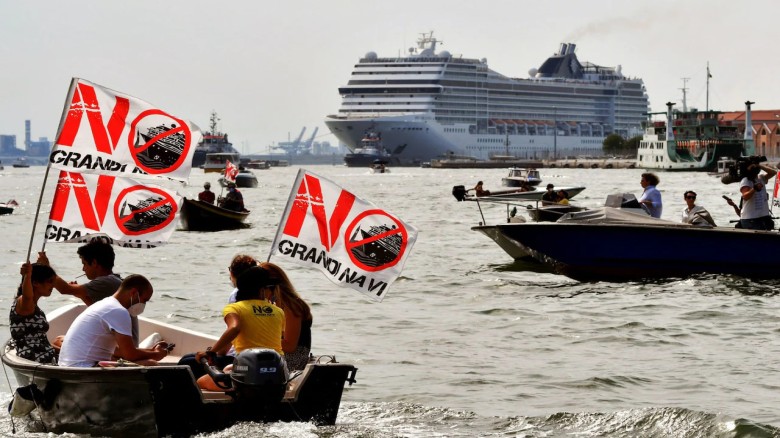The Global Backlash Against Cruise Ships: Destinations Taking a Stand
The pushback against the cruise industry continues to gain momentum as an increasing number of destinations either ban large passenger ships or impose hefty taxes to deter them. This year has already seen new restrictions introduced, signaling a growing resistance to the environmental and economic impact of mass cruise tourism.
Nice Leads the Charge Against Cruise Ships
In one of the latest and most dramatic moves, Nice, the glamorous city on the French Riviera, has announced a ban on large cruise ships. Mayor Christian Estrosi declared in January that, starting July 1, vessels carrying more than 900 passengers will be prohibited from docking at both Nice and its neighboring port, Villefranche-sur-Mer. Calling cruise ships "monsters of the seas" that "pollute and dump their low-cost clientele," Estrosi justified the decision as a necessary step to combat overtourism and environmental damage.
This decision has forced major cruise lines, including Celebrity Cruises, Norwegian Cruise Line, and Royal Caribbean International, to reassess their itineraries. The ban has also sparked criticism from Cruise Lines International Association (CLIA), which accused the mayor of unfairly stigmatizing both the industry and its passengers.
Villefranche’s mayor, Christophe Trojani, has voiced opposition to the ban, reaffirming his preference for the town’s existing restriction, which limits ship visits to one per day for vessels carrying up to 3,500 passengers. Local tourism officials are also concerned about the economic implications, citing the €600 million annual revenue that cruise tourism brings to the region.
A Global Trend: Other Destinations Restricting Cruise Ships
Nice is not alone in taking action against cruise tourism. Across the Atlantic, officials in Belfast, Maine, recently voted to draft a ban on ships carrying more than 50 passengers. Although Belfast is a small port compared to its busier neighbors, Portland and Bar Harbor (which already limits ship calls), this move reflects a broader trend of tightening restrictions.
Meanwhile, Iceland has introduced a daily tax of 2,500 Icelandic krona (around £14) per passenger, aimed at supporting infrastructure and sustainability efforts. This fivefold increase in fees has prompted backlash from cruise companies, with some canceling port calls in response. Similar discussions are underway in Norway, where officials are considering a passenger tax as part of a broader tourism levy.
European Cities Cracking Down on Cruise Ships
A growing number of European destinations have imposed restrictions or are considering new measures to curb cruise tourism:
Venice, Italy – Only ships weighing up to 25,000 tonnes can dock.
Amsterdam, Netherlands – Cruise ship visits will be capped at 100 per year by 2026, with a full ban planned by 2035.
Barcelona, Spain – One terminal has been closed, and a cap limits the number of ships to seven at any given time.
Bordeaux, France – Ship numbers have been reduced amid pollution concerns, with a potential total ban under discussion.
Balearic Islands, Spain – Palma allows a maximum of three ships per day, with only one exceeding 5,000 passengers; Ibiza has further tightened its cap to two ships at a time.
Nice/Villefranche-sur-Mer, France – Ban on ships carrying more than 900 passengers from July 2025.
Santorini, Greece – Cruise visitors now pay a €20 fee, and an 8,000-passenger daily cap is in place.
Mykonos, Greece – Similar €20 fee imposed, with planned passenger limits.
Marseilles, France – No official ban yet, but strong public opposition has led to ongoing protests.
Dubrovnik, Croatia – Limits cruise visits to two ships per day, with a maximum of 8,000 passengers.
Zeebrugge, Belgium – Only two cruise ships allowed per day to manage tourist flow to Bruges.
Valencia, Spain – Plans to prohibit mega-ships starting in 2026.
Iceland – Introduced a per-passenger daily tax of £14 on January 1, 2024.
Norway – Restricting ship sizes and emissions, with a future ban on non-zero-emission ships in fjords, though larger vessels have been given an extension until 2032.
Cruise Ship Opposition Beyond Europe
Outside of Europe, several key tourist hotspots are also restricting cruise tourism:
Maine, USA – Bar Harbor limits cruise visitors to 1,000 per day, while Belfast has moved to ban ships carrying over 50 passengers.
Key West, Florida, USA – A long-standing battle continues over cruise restrictions, with the latest ruling favoring large ships.
Mexico – Initially planned to introduce a $42 immigration fee per passenger in January, but postponed implementation until July following industry pushback.
French Polynesia – Previously banned ships over 3,500 passengers but reversed the decision in 2023, except for Bora Bora, which maintains a 1,200-passenger daily limit.
Alaska, USA – Juneau has a voluntary cap of five large ships per day, with a stricter limit of 16,000 daily passengers (12,000 on Saturdays) set to take effect in 2026.
The Future of Cruise Tourism
The increasing number of restrictions signals a growing concern over the environmental impact and economic sustainability of mass cruise tourism. CLIA continues to advocate for collaboration with local authorities, citing successful partnerships in Palma and Dubrovnik as models for managing cruise tourism responsibly.
According to CLIA’s UK and Ireland managing director, Andy Harmer, "Cruise lines work in partnership with the ports they visit, benefiting the local community and allowing the destination to flourish. Cruise tourism is one of the few forms of travel that allows destinations to plan years in advance."
With more than 2,500 ports worldwide welcoming cruise ships last year, the industry remains robust. However, the rising number of restrictions raises the question of which destination will be next to limit or ban cruise ship arrivals. As cities weigh the benefits of tourism against the strain on their infrastructure and environment, the battle between cruise companies and local authorities is set to continue.






































































Leave A Comment